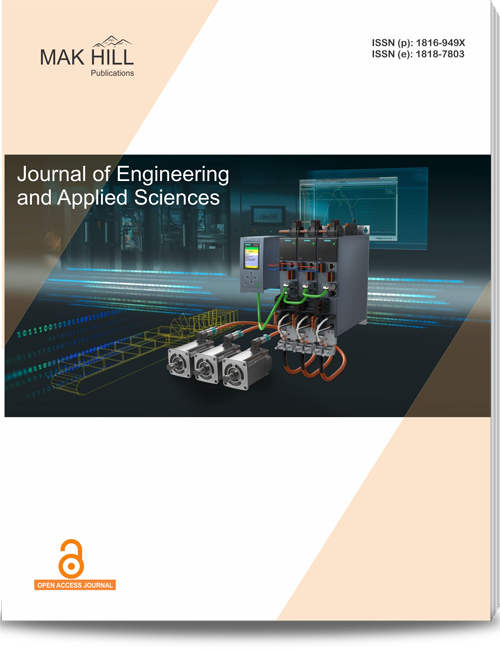
Journal of Engineering and Applied Sciences
ISSN: Online 1818-7803ISSN: Print 1816-949x
Abstract
The objective of this research is to develop a specific energy model of the turning process of hardened material based on numerical experiments and Design of Experiments (DOE). Machining parameters considered include the process parameters (cutting speed and feed rate) and cutting tool geometry (rake angle) while the specific material removal energy is the objective. Firstly, a Finite Element (FE) based model was developed in order to describe the turning process behavior. Subsequently, numerical experiments were conducted based on the Box-Behnken Design (BBD) experiment of Response Surface Methodology (RSM) to render the relationship between machining parameters and energy consumed. An analysis of fitness check was used to investigate the model adequacy. Finally, a Genetic Algorithm (GA) was used to find optimal parameters and energy consumption. The results indicated that the cutting energy was decreased around 15%, compared to un-optimal case.
How to cite this article:
Quoc-Hoang Pham and Trung-Thanh Nguyen. Development of a Specific Energy Model and Optimization of Machining
Parameters for Minimizing Energy Consumption.
DOI: https://doi.org/10.36478/jeasci.2017.1317.1323
URL: https://www.makhillpublications.co/view-article/1816-949x/jeasci.2017.1317.1323